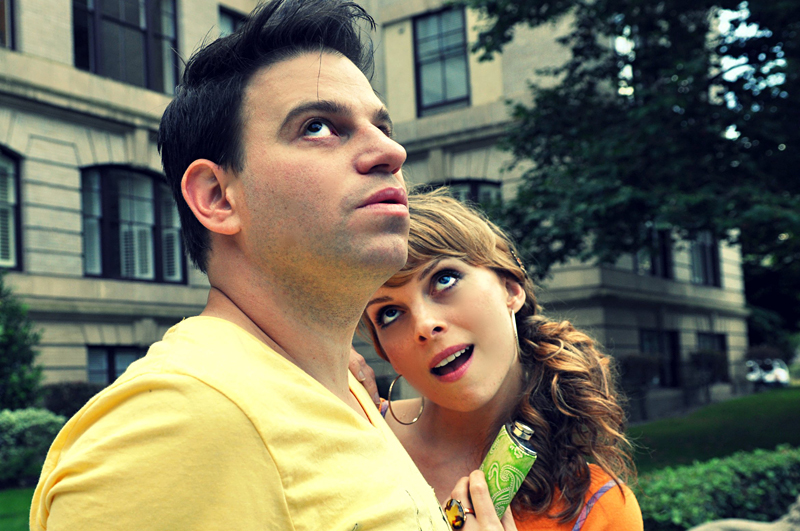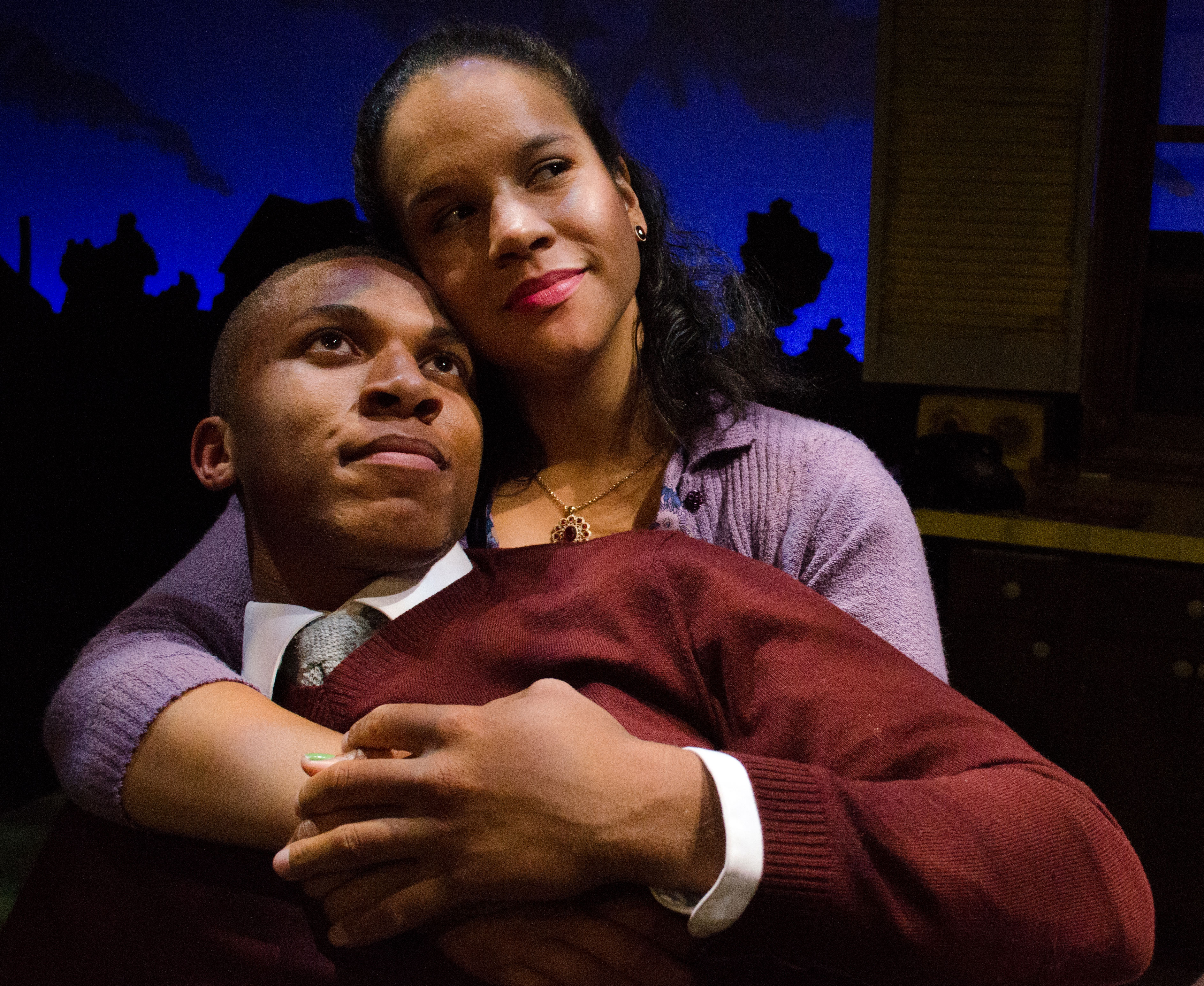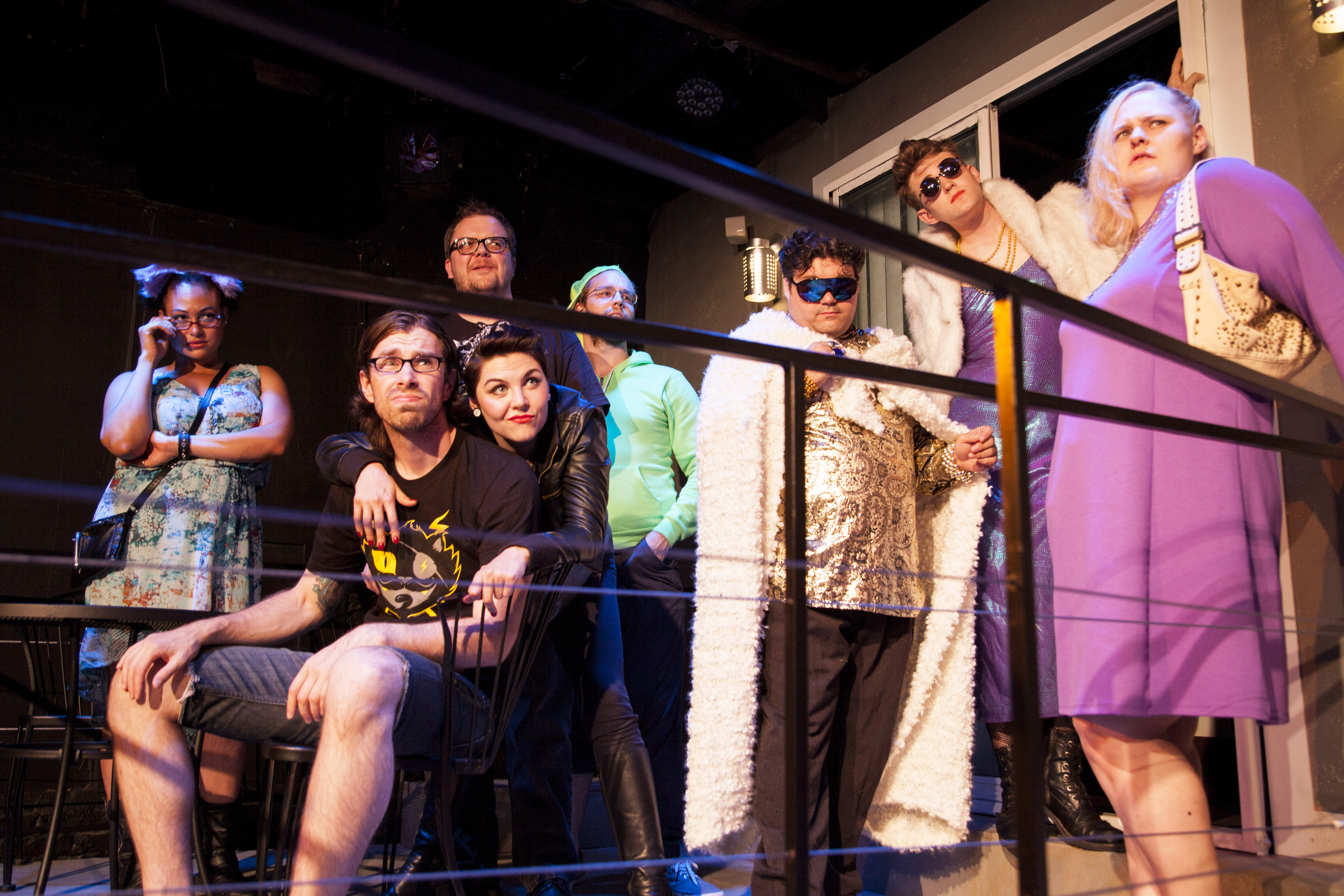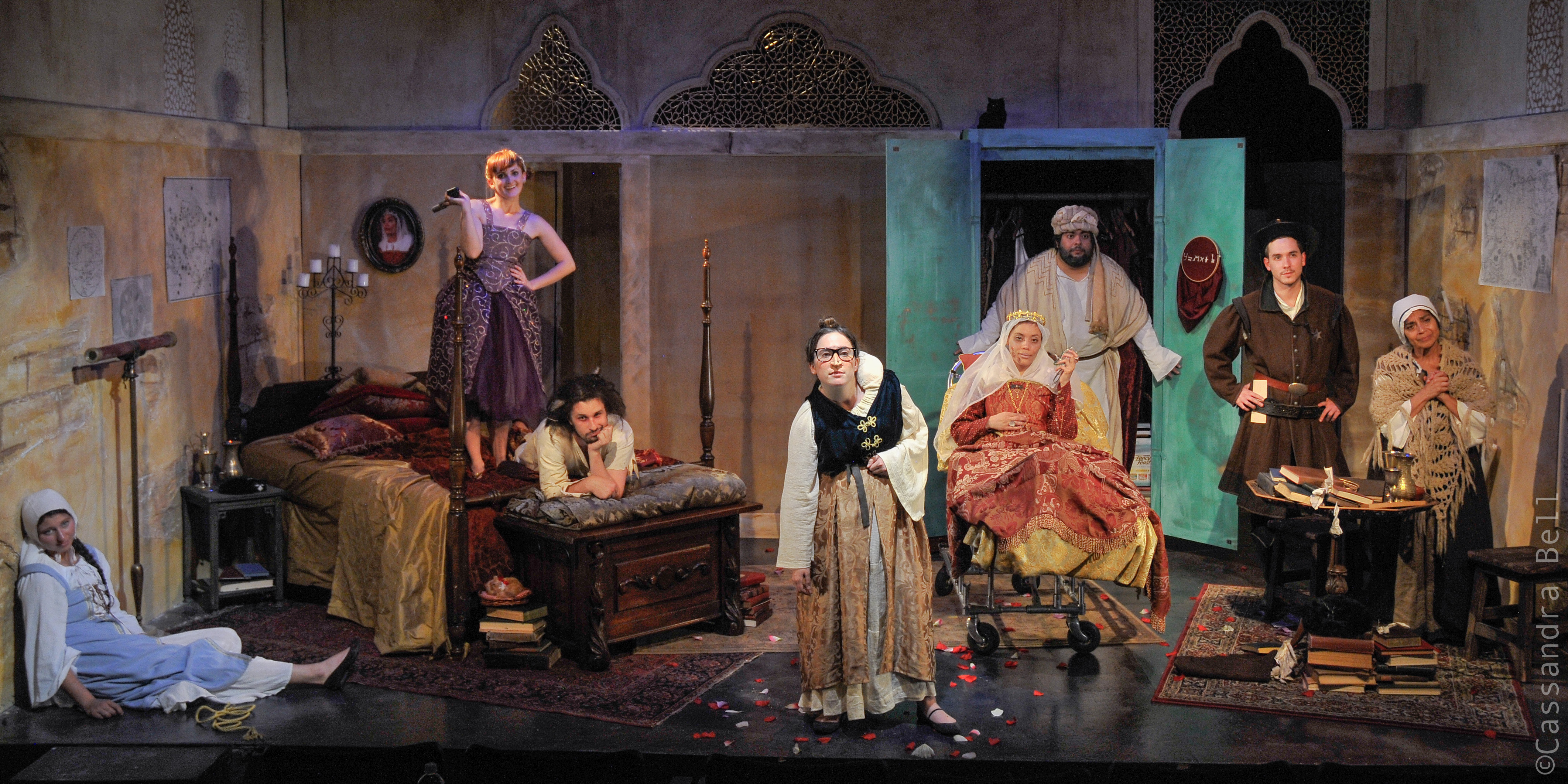Do the dead really spin in their graves? One way to find out might be to exhume Charles M. Schulz to see what Balagan Theatre’s production of Dog Sees God: Confessions of a Teenage Blockhead has done to his remains.
Like those Brady Bunch movies of the mid-’90s, Bert V. Royal’s would-be comedy brings its simple characters into the considerably more complicated present day. It also adds a decade to the ages of Charlie Brown and company, making them teenagers. In conceit, this has the potential to be funny. In reality, it made me hate me, hate you, and hate all existence for 90 minutes.
Sure, I get it that life is not like a Peanuts strip; I thought we were all already in agreement about that. Kids do not philosophize or use words like “ophthalmologist.” Dogs don’t fly in WWI combat against the Red Baron, and little girls don’t dispense psychiatric advice for a nickel a throw. But that was part of the charm of Schulz’s strip, which ran in most American daily newspapers from 1950–2000. (Fantagraphics has lately been republishing the comic, too.) It’s children rhapsodizing about an adult world they understand only in glimmers, little knowing what life is about to throw at them.
In Royal’s fervid imagination (and the show has repeatedly been altered since its 2004 debut at the New York International Fringe Festival), the one possible suggestion for a teenage scenario Schulz himself left—the oddly dom/sub Sapphic relationship between Marcie and Peppermint Patty—is abandoned for a host of choices only Royal would make. He’s also changed Schulz’s original character names to avoid lawsuits, but you’ll recognize just enough of each character to squirm silently in your seat.
Let’s run down the list. Lead blockhead, or “CB” (David Goldstein), is now more a follower than a flawed leader. He’s eventually undone by a doomed same-sex fling. Lucy (Meghan Ahiers) is under lock and key after setting the Little Red-Haired Girl’s hair on fire. Her brother Van (the family name is Van Pelt) is no longer the wise-beyond-his-years Linus, but the fellow who smoked the ashes of his security blanket and turned to pot when it was suggested that he grow up. And so it goes.
The former Pigpen is now Matt (Ben McFadden), a germ-phobic, homophobic misogynist. Schroeder (now “Beethoven,” played by Bobby Temple) is bullied for being deficient in masculine traits. CB’s sister (Libby Barnard) sloughs off a new identity every few days in an effort to discover herself. Far from being lovers, Peppermint Patty, aka “Tricia” (Allison Standley), and Marcie (Amy Hill) are now the high-school skanks, getting drunk at recess and scheming for sex.
In New York and Los Angeles, the play cleverly cast recognizable up-and-comers from TV and film. No such luck here. Although the Balagan ensemble struggles valiantly to enliven the material, they and director M. Elizabeth Eller fail to find any humanity in what seems to be Royal’s one-man vendetta against Schulz.
Being too snarky and jaded to like Peanuts is nothing new; in fact, the countercultural mockery began in the ’60s. What’s unfathomable is why it would be worth Royal’s time now to write such scathingly unfunny material, or what the attraction—beyond reckless daring—would cause Balagan to stage it in the first place. Did someone lose a bet?








